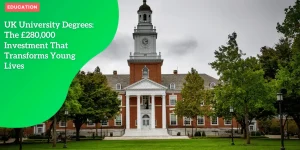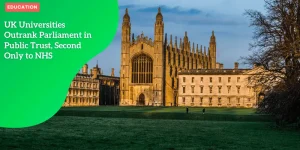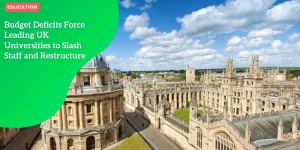Scotland Proposes Revolutionary Graduate Visa: What International Students Need to Know
Anúncios
Understanding Scotland’s New Graduate Visa Proposal
Scotland’s First Minister, John Swinney, has proposed an innovative visa aimed at international graduates from Scottish institutions.
This bespoke Scottish Graduate Visa seeks to retain skilled graduates, ensuring they contribute to Scotland’s economy and address the country’s projected population decline.
Anúncios
Under the proposed plan, the visa would be intricately tied to the Scottish tax code, meaning recipients would be mandated to live and work within Scotland.
The goal here is clear: bolster Scotland’s workforce with highly skilled, educated individuals from its universities.
Anúncios
Swinney emphasized the importance of this initiative, noting that Scotland is expected to see a population dip over the next two generations.
By retaining international graduates, the hope is to infuse the local economy with talent and innovation, thereby achieving a more robust economic foundation and sustainable public services.
Creating a specialized migration route designed explicitly for Scotland is not without precedent.
Two decades ago, Scotland and the UK government collaboratively launched a tailored migration program with similar objectives.
Swinney recalled this successful historical precedent, suggesting there’s no reason such collaboration couldn’t happen again.
However, despite the strong economic and social arguments for the visa, there is resistance from the UK government.
They prefer maintaining a unified immigration system, already accommodating international students through the UK Graduate Route, allowing a two-year post-graduation stay.
Swinney’s proposal stands as a significant step towards addressing demographic challenges while capitalizing on the existing contributions of international students.
Their retention could play a pivotal role in making Scotland’s economy more resilient and its communities more prosperous.
As the specifics of the visa continue to be debated, it remains to be seen how this proposal will shape Scotland’s approach to international student retention and broader economic strategy.
Economic Impact of International Students
International students play a crucial role in bolstering Scotland’s economy, contributing an impressive £4.75 billion annually.
This contribution extends beyond mere numbers; it fuels local businesses, supports public services, and strengthens institutions.
Proposed by Scotland’s First Minister, the Scottish Graduate Visa could amplify these benefits by retaining skilled graduates within the country.
Boosting Scotland’s Economy and Public Services
By connecting the proposed visa to the Scottish tax code, the initiative ensures that international graduates living and working in Scotland directly contribute to the local economy.
The influx of tax revenue would make public services more sustainable and robust, benefiting residents and newcomers alike.
This targeted approach could help address Scotland’s looming population decline and foster economic resilience.
 The passport will benefit the country in many ways
The passport will benefit the country in many ways
Benefits to Local Communities and Institutions
Retaining skilled graduates has far-reaching benefits for local communities and institutions.
Highly educated individuals often bring innovative ideas, specialized skills, and entrepreneurial spirit to their new homes.
They can drive growth in key sectors such as technology, health, and education, fostering a vibrant, diverse community.
Universities would also benefit from this initiative.
Attracting international students becomes easier when there is a clear, supportive pathway for staying post-graduation.
By enhancing the appeal of Scottish education, the proposed visa would strengthen academic institutions and enrich the overall educational environment.
This focus on retaining international talent underscores a broader strategy aimed at long-term economic stability.
As negotiations between the Scottish and UK governments continue, the potential for regional growth through talent retention becomes increasingly evident.
Current UK Graduate Route vs. Proposed Scottish Visa
Existing UK Graduate Route
The existing UK Graduate Route permits international students to remain in the UK for up to two years after graduation.
This path is an integral part of the UK’s efforts to attract and retain skilled international talent.
International graduates from recognized UK higher education institutions can seek and undertake employment at any skill level during this period, providing ample opportunities to gain working experience in various industries.
Opposition to Separate Scottish Visa System
Despite the advantages of the UK Graduate Route, Scotland’s proposal for a bespoke Scottish Graduate Visa has met resistance from the UK government.
The central argument against a tailored Scottish visa is the insistence on maintaining a unified immigration system across the UK.
The UK government believes that the existing Graduate Route already serves the purpose of retaining international talent, as supported by education secretary Bridget Phillipson’s ongoing campaign to promote post-graduation work opportunities for international students in the UK.
Key Differences Between Schemes
Despite both the UK Graduate Route and the proposed Scottish Graduate Visa aiming to retain international talent, they present key differences:
- ✈️ Duration and Specificity: The current UK Graduate Route offers a uniform two-year period for post-graduation employment throughout the UK. In contrast, the Scottish proposal seeks to create a localized system for Scotland.
- ✈️ Regional Focus: The Scottish Graduate Visa would require graduates to live and work specifically in Scotland. This visa would be tied to the Scottish tax code, directly benefiting Scotland’s economy by ensuring that income taxes from these graduates support local public services.
- ✈️ Targeted Retention: The Scottish proposal has a broader strategic aim – to address Scotland’s anticipated population decline by retaining skilled international graduates who contribute to the country’s demographic and economic resilience.
Transition to Future Chapters
Understanding these differences highlights the nuanced debate around regional autonomy in migration policy, framed against the backdrop of a unified UK system.
As negotiations between the Scottish and UK governments continue, the potential impact on Scotland’s international student recruitment, economic growth, and regional resilience remains to be seen.
Support and Opposition for the Proposal
Scotland’s proposal for a specialized graduate visa is generating mixed reactions across the board.
Central to the debate is the division between those advocating for greater regional flexibility in migration policies and those upholding a unified national approach.
Strong Support from Universities Scotland
Universities Scotland, a key proponent of the proposal, is vocal about the potential benefits of a regional visa.
Paul Grice, the convener, emphasized the necessity of inward migration for Scotland’s future.
He highlighted how a tailored visa system could serve as a significant advantage for the region, particularly in addressing the projected population decline.
According to Grice, universities would play a crucial role in attracting and retaining highly skilled individuals, benefiting both the educational sector and the broader Scottish economy.
UK Government’s Unified Immigration Stance
On the other hand, the UK government is resolute about maintaining a standardized immigration system across the country.
While acknowledging the importance of international students, the government has so far rejected the idea of a separate Scottish Graduate Visa, citing the existing UK Graduate Route.
This route permits international graduates to stay in the UK for up to two years post-graduation, a policy they believe should suffice.
A UK government spokesperson reiterated that there are no plans to introduce a new Scottish-specific visa, emphasizing the need for consistency in the national immigration framework.
Historical Collaboration and Future Negotiations
Proponents of the Scottish Graduate Visa often refer to the historical precedent set two decades ago when Scottish and UK governments collaborated to create a specialized migration route for international graduates.
John Swinney, Scotland’s First Minister, is optimistic that a similar arrangement can be reached again.
He points out the mutual benefits such a collaboration could bring, enhancing Scotland’s economic robustness and sustaining its public services.
As negotiations continue, the outcome will likely hinge on whether both governments can reconcile their differing views on immigration policy.
This dynamic debate is set to shape the future of international student recruitment and retention in Scotland for years to come.
This ongoing discourse highlights the challenges and opportunities that lie ahead as Scotland endeavors to address its demographic and economic needs through innovative migration policies.
Future Prospects and Implications
Potential Impact on International Student Recruitment in Scotland
Scotland’s proposed specialized graduate visa aims to make the country an even more attractive destination for international students.
By offering a unique post-graduation opportunity that ties to the Scottish tax code and mandates living and working in Scotland, the visa seeks to retain talented graduates who would contribute to the local economy and culture.
Given the already significant economic contribution of £4.75 billion annually by international students, policies that could enhance this figure further are crucial for sustainable growth.
Ongoing Negotiations Between Scottish and UK Governments
The proposal has sparked a debate between the Scottish and UK governments.
On one hand, Scotland sees regional migration flexibility as essential to counter its projected population decline and to harness the potential of skilled graduates.
On the other hand, the UK government insists on maintaining a unified immigration system and has so far rejected the idea of a separate Scottish Graduate Visa.
First Minister John Swinney has pointed out historical precedents, suggesting that a collaborative approach is possible.
Ongoing negotiations will play a vital role in determining whether a compromise can be reached that serves both regional and national interests.
Opportunities for Regional Economic Growth Through Talent Retention
The potential for regional economic growth through the retention of international graduates cannot be overstated.
Universities like those in Scotland act as magnets for highly skilled individuals, offering them the opportunity to contribute to local businesses, public services, and communities.
Paul Grice, the convener of Universities Scotland, has emphasized the economic and social benefits that a specialized Scottish Graduate Visa could bring: “Inward migration will be essential to Scotland’s future, and there is a really positive opportunity for Scotland’s universities to help deliver this as a win-win for the sector and Scotland as a whole”.
In the broader context, a successful implementation of the Scottish Graduate Visa could encourage other regions within the UK to consider tailored migration policies that better suit their unique needs.
This regional approach might bridge the gap between a one-size-fits-all national policy and localized requirements, promoting balanced economic growth and social stability.






